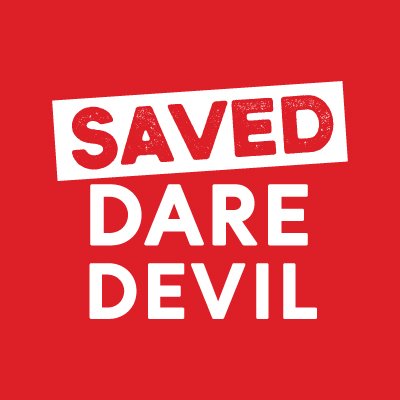The Devil You Know: Why the MCU's Daredevil has the potential to be the superhero for all fans
From the moment #SaveDaredevil kicked into gear our wish list was clear and consistent: A television series with the same cast, same crew, same creative team, and same dark tone.
As we sit here nearly four years on, we have the confirmed return of Charlie Cox and Vincent D’Onofrio for an incredible 18-episode series to debut in the Spring of 2024, with various Matt Murdock appearances in the interim promising to tide us over. Even though we’ll have to be patient for more details and further casting news, the overriding emotions of these campaigners are joy and gratitude.
Understandably, the other side of that coin is apprehension and worry. Worry they’ll forget Foggy and Karen; worry the fight scenes won’t be as grounded; worry that Daredevil will be “Disneyfied” and watered down. But recently a more specific worry has been injected into the discourse, which is that Mark Waid’s iteration of Daredevil will be the new blueprint, and our brooding vigilante will be replaced by a nonstop quipping machine with horns. An extremely crude and superficial take.
TO WAID OR NOT TO WAID?
This new discussion is made up of a boisterous mix of people who have read Waid’s run and loved it/hated it/had mixed feelings, and people who haven’t read Waid’s run but have strong opinions about it anyway. And as social media is wont to do, in reductive and knee-jerk fashion, a false dichotomy is being perpetuated that you are either a Netflix Daredevil fan or a comic book Daredevil fan, with no overlap, and we must fight to the death.
As adults capable of holding more than one thought in our heads at the same time, this black and white thinking is disappointing. The truth is that so many of us Netflix Daredevil fans are also comic book readers. Over the years, members of the #SaveDaredevil campaign have expressed a deep appreciation for Mark Waid and his unflinching approach to tackling serious subjects like depression, racism, and cancer.
Yes, the color palette is bright and cheerful compared to previous eras, while DD takes on a more swashbuckling, happy-go-lucky veneer, and a wacky rogues gallery, but the struggle with his inner demons and grief that inform who he is are never far from the surface. This was rendered with poignancy throughout the run.
Daredevil Vol. 4 #10
Daredevil Vol. 3 #24
In a 2014 interview with The Beat, Waid talked about Matt’s freshly adopted “onwards and upwards” attitude:
I think you see very clearly in Daredevil that depression is inertia. What fuels depression is that sense of helplessness, that sense of not knowing what to do next, that image of sitting on a gargoyle in the rain on the rooftop, frozen by inaction. To me, Daredevil comes to grips with that and is actively pushing past. I wrote a scene where he feels that paralysis that comes with depression and he pushes through it. He makes an active decision to move forward. Any movement is better than no movement at all.
There is no darkness without light. When we last left him on Netflix, Matt was emerging from forty-seven episodes of almost unrelenting torment. Every time we were given a glimpse of happier times it felt all the more profound because we knew it wouldn’t last.
A great character is not monotone. Daredevil’s 650 issues and counting have been a result of growth, added dimension, and a willingness to break new creative ground.
Daredevil Vol. 4 #7
Daredevil Vol. 3 #32
Stagnate and die applies to our hero in live action as well. We clearly aren’t shy when it comes to shouting about what we love about the Netflix series and wanting to see more in the same vein, but I have to believe that the majority of us who truly care about his success are open to seeing unexplored aspects of his personality developed, even if it means slightly upping the joke count in She-Hulk before the world comes crashing down on his shoulders once more in Born Again.
whether Dark & brooding or lighthearted, daredevil can be the superhero for all fans
Regardless of how we became fans, there is no right or wrong way to love Daredevil. But how we choose to express that love and engage with fans with different points of view, matters. There are no winners when we draw artificial lines in the sand and antagonize each other. That negativity is insidious. It not only has the potential to drive away new fans, but there’s a danger the resentment could snowball to the point we end up alienating ourselves.
So in an effort to rise above the fray, to any would-be Daredevil fan reading this who would like to help us grow a supportive community that values diverse ideas and respectful debate, give us a follow. The Fandom Without Fear welcomes you with open arms.
This excellent opinion piece was written by an individual member of the #SavedDaredevil team, but endorsed by our group as a whole. Have you been engaging in the ongoing Daredevil discourse? We’d love to know what you think. Leave us a comment or share your thoughts with us on social media.




